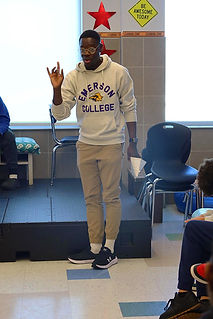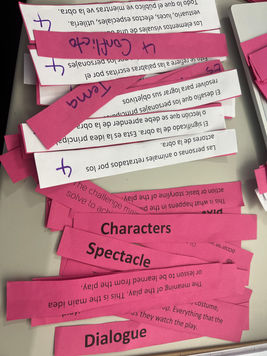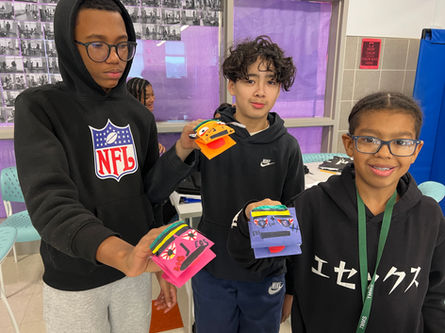what people say
teaching philosophy
I deeply resonate with the Chinese proverb: “Tell me and I forget. Show me and I may remember. Involve me, and I understand.” This principle guides my approach to theatre education. I believe that by actively engaging students in their own learning—through role-playing, process drama, teacher-in-role, and collaborative work—theatre becomes more than an art form; it becomes a transformative tool for personal and intellectual growth. It makes learning more profound, intricate, and significantly increases retention.
In my classroom, I create an environment where students build on prior knowledge, explore new ideas, and develop critical thinking skills. I firmly believe that every learner, regardless of age, background, or identity, has something valuable to contribute to the world. As an educator, my role is to help young people actualize their potential and discover their unique voices through student-driven activities. By doing so, I strive to nurture expressive, creative theatre artists and globally minded citizens.
Education should empower students to become changemakers. Theatre and drama naturally offer an engaging, experiential way of learning that fosters communication, collaboration, and problem-solving. I have observed that students are more receptive to materials presented through dynamic, relatable methods such as storytelling, role-playing, and even movement. A classroom free of judgment allows them to take creative risks and develop essential social skills. Theatre techniques not only enhance artistic abilities but also cultivate critical thinkers and lifelong learners capable of addressing real-world issues through thoughtful discussion and exploration. Additionally, these skill sets become transferable across all other classes taken by a learner, thus becoming influential in their whole academic success.
Inspired by John Dewey’s philosophy that learning should be authentic and democratic, I encourage students to discover knowledge through guided exploration. Recognizing that students have different learning styles, I create a diverse, student-centered environment where they take ownership of their learning. At the beginning of each school year, my students collaboratively develop a community contract (what call a Drama Contract)—a set of shared expectations that fosters accountability, mutual respect, and a strong classroom culture. This also acts as a classroom management strategy. I incorporate community-building activities to ensure a safe, inclusive space where every student feels valued and heard.
To support diverse learners, I integrate modern teaching approaches, including hands-on projects, group and individual work, multimedia resources, creative journaling, arts and craft, and student-driven interests. My goal is to foster critical thinking and personal connections with the material, their classmates and the world around them by encouraging reflection, discussions, and artistic critique.
As an international educator with experience in the Caribbean, the U.S., and beyond, I bring a global perspective to my classroom and curriculum, exposing students to a rich diversity of cultures, theatrical traditions, and contemporary issues. I include different cultures and experiences when working with plays, classroom games and activities, practices and subject matters that reflect different cultural backgrounds.
Beyond the classroom, I believe in fostering holistic student development through extracurricular activities such as drama clubs, productions, and interdisciplinary collaborations. By involving parents, teachers, and the wider community, I create meaningful learning experiences that extend beyond the stage. I believe in a harmonious school environment where everyone works together in harmony for the development of students. Additionally, I integrate theatre techniques into other subjects, partnering with educators in language arts, social studies, and history to enhance student engagement and comprehension.
Ultimately, my philosophy is rooted in the belief that theatre is a powerful educational tool that shapes confident, empathetic, and socially aware individuals. Through dynamic, student-centered learning, I aim to inspire the next generation of artists, thinkers, and leaders—equipping them with the skills to express themselves, challenge perspectives, and make meaningful contributions to the world.








































